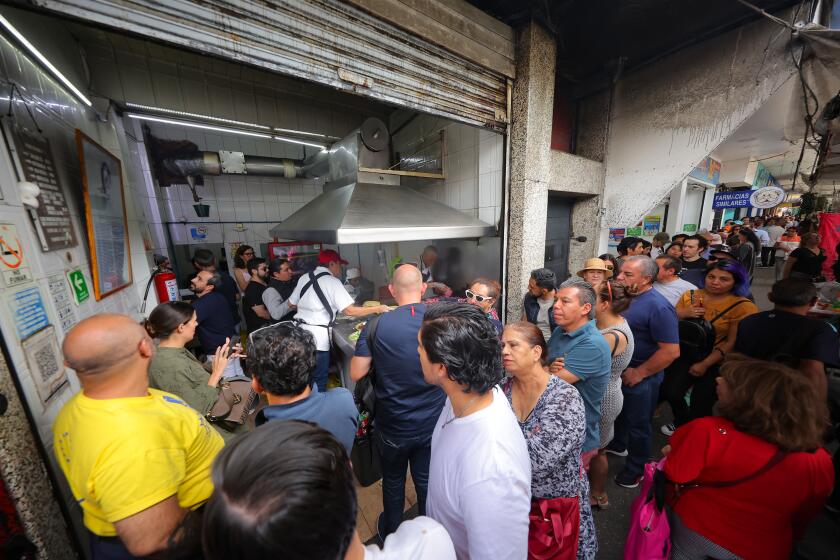MEXICO CITY — Mexican President Andrés Manuel López Obrador on Monday criticized the U.S. government’s withdrawal of inspectors from avocado packing houses, even as both sides in the dispute said that exports to the United States would resume.
The U.S. Dept. of Agriculture halted inspections in the violence-plagued state of Michoacán on June 15 after two of its employees were “attacked and detained,” according to Ken Salazar, the U.S. ambassador to Mexico.
The move effectively blocked shipments to the United States of both avocados and mangoes from Michoacán, paralyzing a crucial industry. Mexican officials and producers put the damage at $75 million in lost exports and thousands of lost jobs.
In his regular morning news conference, the Mexican president accused Washington of setting a “bad precedent” in failing to reach out to Mexican authorities before abruptly canceling inspections.
“We first ask that the government of the United States not act in a unilateral manner,” López Obrador told reporters. “We have very good relations. We are working in a cooperative manner, and this is not the way.”
López Obrador, whose term ends on Oct. 1, has collaborated closely with Washington on issues including trade, immigration and crime. But the populist president has also often been a frequent critic of what he terms U.S. “arrogance,” especially in dealings on cross-border drug-trafficking.
There was no immediate reaction to López Obrador’s comments from U.S. officials — even as the U.S. ambassador traveled to Morelia, the capital of Michoacán, and declared the avocado standoff settled.
At a press conference with the Michoacán governor and other officials, Salazar said that the two sides had agreed to improve cooperation and set up a “very comprehensive” emergency plan to avoid future inspection snafus. Mexican authorities have vowed to bolster security for U.S. inspectors if needed.
The ambassador did not specify if inspections and imports of avocados and mangoes had resumed. On Friday, Salazar said that the inspectors — tasked with certifying that fruit are free of disease and pests before being exported — would “gradually” be returning to fruit pack-houses.
U.S. and Mexican officials have provided conflicting accounts of the June 14 incident that led to the shutdown of inspections.
While Salazar said the two inspectors were “attacked and detained,” Mexican authorities said the pair — both Mexican nationals employed by the embassy — were never targeted or held.
Their vehicle was one of dozens stopped in an unrelated protest about unpaid police wages in the Michoacán municipality of Paracho, according to Mexican officials. Demonstrators in Michoacán and elsewhere in Mexico routinely block roads to draw attention to their grievances.
Mexico exports more than $3.5 annually billion in avocados to the United States. Michoacán is the country’s primary producer of avocados, but organized crime gangs there regularly shake down growers, field hands, truckers and others involved in the lucrative commerce for “green gold,” as the fruits are known.
Special correspondent Cecilia Sánchez Vidal contributed to this report.










